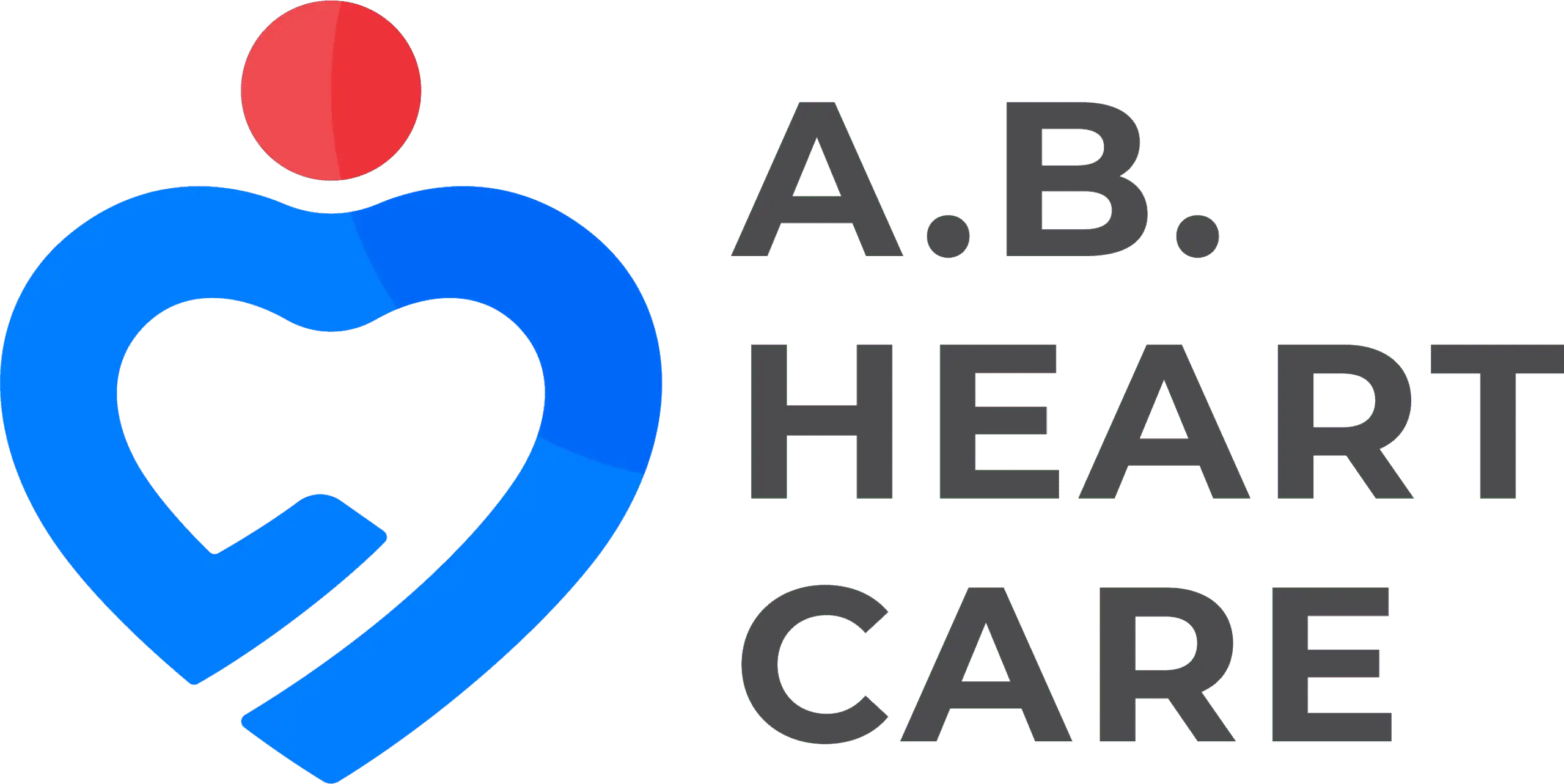Bypass Heart Surgery in Chandigarh
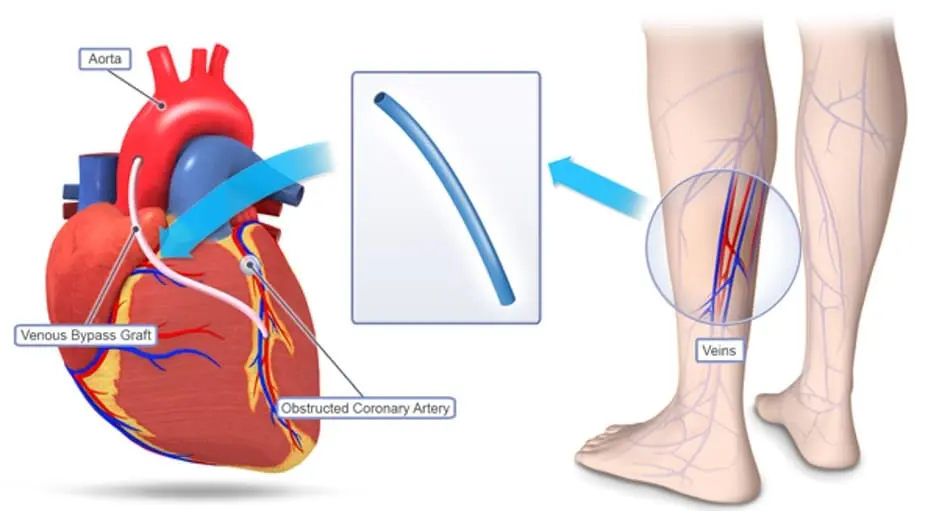
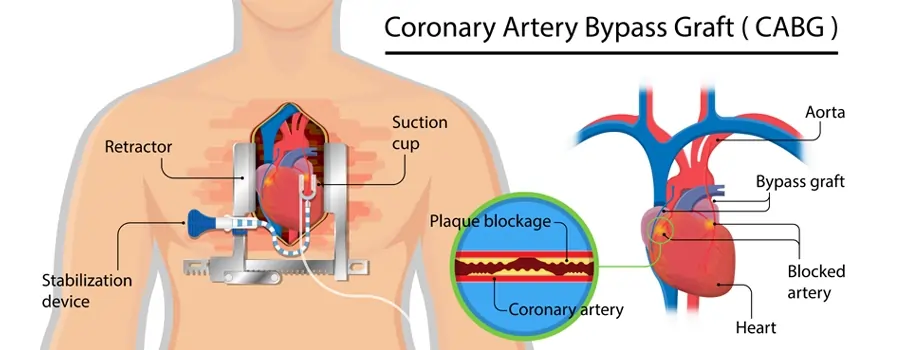
Bypass Heart Surgery
To increase blood flow to the heart, bypass heart surgery, or coronary artery bypass graft (CABG) surgery, is performed. Blood vessels taken from another part of the body are used by a surgeon to bypass the blocked arteries.
Per year, doctors perform about 60,000 such surgeries in India.
When coronary arteries become blocked or damaged, this operation is recommended. Oxygenated blood supplies the heart with these vessels. The heart doesn’t function properly if these arteries are blocked or blood flow is limited. This can lead to heart failure.
Also See: Bypass Heart Surgeon in Chandigarh
What are the different types of bypass surgeries?
Depending upon what grafts are used to bypass the blocked arteries of the heart, bypass heart operation can be of different types:-
- Total arterial bypass:- Arterial grafts like internal mammary artery (IMA) and Radial artery (RA) are commonly used in this technique. Arterial grafts have been proven to last longer than vein grafts.
- Single arterial bypass:- Only one arterial graft is used and other heart vessels are bypassed with veins taken from the leg of the patient. This technique is most commonly used all over the world.
- All venous grafts, no arterial grafts:- This technique is least preferred as it is recommended to put at least one arterial graft to the LAD (Left Anterior Descending) artery.
Depending upon technique also bypass surgery can be of three types:-
- Minimal Invasive Cardiac Surgery (MICS):- In this technique, no bone is cut but only a small 2-3 inch incision is taken on the side of the chest. Patients have better recovery and fewer restrictions after surgery with the MICS technique. It is technically challenging and not all patients are suitable for this technique.
- Open Heart technique:- This is the most commonly used technique worldwide. Here 6-7 inch cut is made on the front of the chest, Sternal bone is cut to access the heart. For poor heart function, recent heart attack and poor target vessels, this technique is preferred.
- Hybrid technique:- MICS arterial graft is placed on LAD (the most important artery of the heart) and the rest arteries are stented. This is a newer concept and gaining popularity.
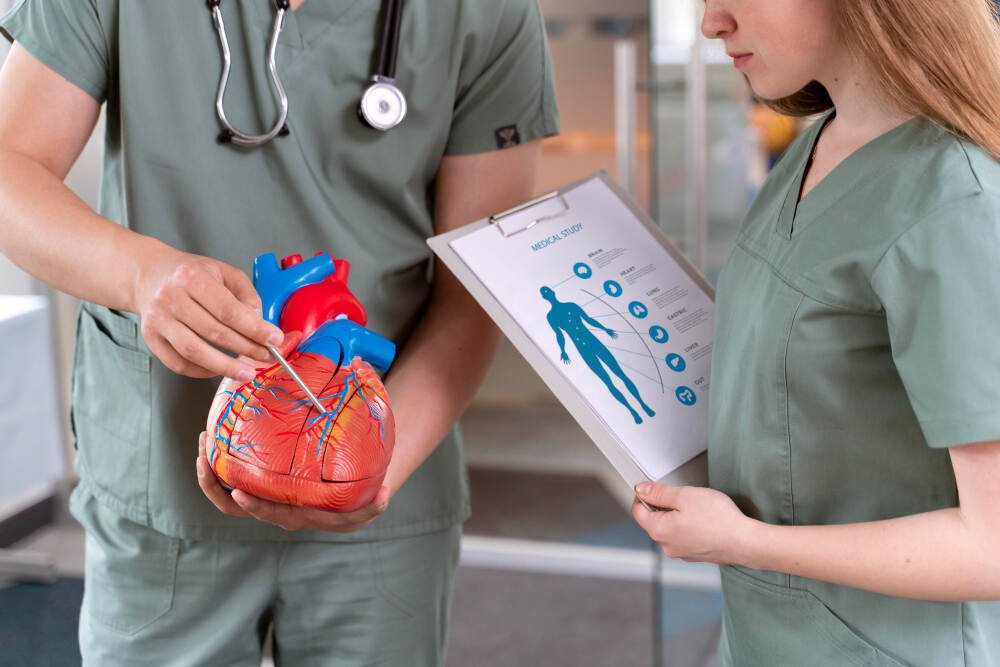
What is Bypass Heart Surgery?
This operation can markedly alleviate chest pain, decrease the likelihood of heart attack, and enhance the patient’s quality of life. Our skilled Dr. Ashwani Bansal at AB Heart Care makes certain that every operation is tailored in accordance with the patient’s condition, age, and health.
Also See: Best Cardiologist in Chandigarh
Comprehensive Pre-Surgical Evaluation: Ensuring Safety Before Every Procedure
Preparations for a Successful Bypass Surgery Experience
Your security and comfort are of the highest priority to us right from the time we receive you through our gates at AB Heart Care. Your Chandigarh heart bypass surgery comes after a detailed pre-surgical assessment of each patient.
This comprehensive analysis comprises vigorous blood tests, chest X-rays, echocardiograms, coronary angiography, and complete review of your medical history. Our cardiologists carefully assess your cardiac function, lung volume, and any prior conditions such as diabetes or hypertension to customize the safest surgery plan.
- We also conduct a pre-anesthesia evaluation to determine any possible future problems in surgery. We include the patient and their relatives in planning and provide comprehensive counseling to inform you of the procedure, recovery outcomes, and life changes. This patient-focused approach establishes trust, minimizes fear, and maximizes surgical success rates.
Preparation for procedure through investment equates to smoother surgeries, quicker recovery, and improved long-term heart health outcomes for each patient we see.
Why Choose AB Heart Care for Bypass Heart Surgery?
When it’s about something as life-changing as heart surgery, experience, machinery, and compassion count. All three of these exist in one place at AB Heart Care. Here’s why patients believe in us when it comes to bypass heart surgery in Chandigarh:
Highly Qualified Cardiac Surgeons
Personalized Treatment Plans
We understand that each heart is different. That’s why we offer a personalized treatment plan according to your health profile, family background, and lifestyle. From pre-surgery diagnosis to post-operative rehabilitation, all is handled by our Bypass Surgery Specialist in Chandigarh.
State-of-the-Art Surgical Facilities
Our operating rooms are also well supplied with the latest cardiac surgery equipment, such as 3D imaging devices and robotic support in sophisticated procedures. This enables us to perform both conventional and minimally invasive bypass surgeries with high accuracy.
Integrated Cardiac Care
From diagnosis to surgery to rehabilitation, every cardiac care facility is at one place at AB Heart Care. Our cardiologists, surgeons, nurses, and rehabilitation staff do work as a team to provide coordinated and smooth care.
Servicing Zirakpur and Other Areas with Unparalleled Care
AB Heart Care is pleased to service patients who seek heart surgery in Zirakpur and the surrounding areas. Our center is conveniently located to those traveling from Panchkula, Dera Bassi, and Ambala. Our staff assures safety, compassion, and the best clinical excellence, so that every patient feels confident and well-cared for.
If you’re looking for a bypass heart surgery specialist in Zirakpur Chandigarh, you’ll find exceptional support and expertise with us. We are more than a hospital; we are your partners in possible recovery and heart wellness.
Bypass Heart Surgery: Step-by-Step Procedure
Preoperative Evaluation
- Imaging and complete blood tests (ECG, Echo, Angiogram)
- Visit cardiologist and cardiac surgeon
- Medication regimen and anesthesia planning
Operation
- General anesthesia is given.
- The surgeon takes out a healthy artery or vein from the arm, chest, or leg.
- The graft is put on the coronary artery after the block.
- Blood supply from the heart gets diverted through the graft.
Postoperative Recovery
- ICU stay for 24–48 hours
- Hospital stay of 5–7 days
- Physical therapy and stepwise return to activity
- Follow-up visits and health counseling

Bypass Heart Surgery Recovery and Aftercare
Recovery from bypass surgery is individualized but typically involves:
- First Rest Period: Your recovery occurs during the initial 6–8 weeks. You will be instructed not to do heavy exercise, lifting, or driving.
- Cardiac Rehabilitation: Structured programs are available to help you regain strength through the use of guided exercise and nutrition guidance.
- Medication Management: You might require continuous medication for cholesterol, blood pressure, and blood thinners.
- Emotional Wellbeing: Most patients undergo emotional adjustments after surgery. Our support groups and counselors can assist you in adjusting to these adjustments.
Patient-Centric Approach: Real Stories, Real Healing

State-of-the-Art Techniques: Minimally Invasive and Robotic Surgery
For suitable patients, we offer minimally invasive bypass surgery options that brings in less wound, less blood loss, and quicker recovery. The procedure is particularly beneficial for elderly or patients with other illnesses.
Our surgeons’ make use of robotic technology and advanced visualization tools enables them to operate more accurately, minimizing trauma to underlying tissues and improving overall outcomes.
Cost Transparency Bypass Surgery
At AB Heart Care, we believe in providing transparent cost systems without actually skimping on the quality. The cost of heart bypass surgery in Mohali Chandigarh could vary based on the below-mentioned factors:
- Illness of patient
- Complexity of procedure
- Use of minimally invasive technique
- Hospital stay
We provide a cost breakdown once your initial evaluation is done so that you don’t have to worry while planning your treatment.
Also See: Best Heart Surgeon in Chandigarh
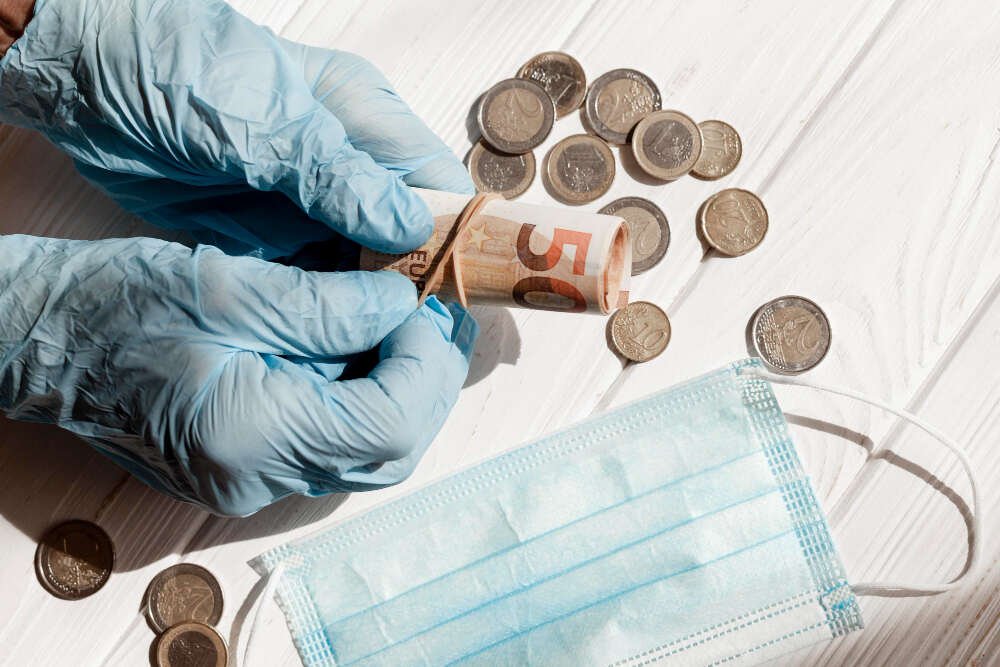
Conclusion
If you are searching for reliable bypass heart surgery under reputed surgeons in Chandigarh, then AB Heart Care is the place to be. We offer compassionate, cutting-edge cardiac care according to your needs. Book a consultation today and start your journey toward a healthier heart.
Your heart deserves the best care. If you or any of your family members have coronary artery disease, then wait no longer. Early diagnosis followed by prompt operation can certainly prevent heart attacks and save lives. Our team is here to answer your questions, describe your options, and provide the highest quality of care.
Frequently Asked Questions (FAQs)
Who needs bypass heart surgery?
What is the duration of the operation?
Is bypass surgery safe?
How long will I have to stay in the hospital during the surgery phase?
Can I return to normal activities after bypass surgery?
Why does a person need bypass surgery?
- Due to age and cardiac risk factors, Cheesy material (plaque) builds up on arterial walls. This build up of plaque blocking heart muscle blood flow is called Coronary Artery Disease (CAD).
- The heart, if it does not receive enough oxygen, is more likely to become tired and fail. Any arteries in the body can be damaged by this process of atherosclerosis.
- If your coronary arteries are so narrowed or blocked that you run a high risk of a heart attack, your doctor can suggest bypass heart surgery.
- Bypass surgery is also advised by the doctor if the blockage is too extreme to be treated with medicine or other therapies like stenting.
How can we help you determine the need of bypass surgery?
- Any blockage in the heart on angiography that is more than 70% and causing chest pain, breathlessness or decrease of heart function; will require either stenting or bypass heart surgery.
- When blockage is short, non calcified, away from origin or bifurcation of heart arteries then stenting is suitable. If blockages are multiple requiring many stents then bypass heart surgery is suitable.
- If your coronary arteries are so narrowed or blocked that you run a high risk of a heart attack, your doctor can suggest bypass heart surgery.
- Stent life is short especially in the presence of diabetes and calcification of heart arteries. Bypass heart surgery becomes more difficult after multiple long stents are placed.
What medications are given after bypass surgery?
- In general medications requirements are less after bypass surgery.
- For one week there are few antibiotics and painkillers, along with small doses of blood thinning medications.
- If your coronary arteries are so narrowed or blocked that you run a high risk of a heart attack, your doctor can suggest bypass heart surgery.
- Disease risk modifying agents like beta blockers, ace inhibitors and Aldactone are also used depending upon renal functions and blood pressure of the patient.


Bypass Heart Surgery
To increase blood flow to the heart, bypass heart surgery, or coronary artery bypass graft (CABG) surgery, is performed. Blood vessels taken from another part of the body are used by a surgeon to bypass the blocked arteries.
Per year, doctors perform about 60,000 such surgeries in India.
When coronary arteries become blocked or damaged, this operation is recommended. Oxygenated blood supplies the heart with these vessels. The heart doesn’t function properly if these arteries are blocked or blood flow is limited. This can lead to heart failure.
Also See: Bypass Heart Surgeon in Chandigarh
What are the different types of bypass surgeries?
Depending upon what grafts are used to bypass the blocked arteries of the heart, bypass heart operation can be of different types:-
- Total arterial bypass:- Arterial grafts like internal mammary artery (IMA) and Radial artery (RA) are commonly used in this technique. Arterial grafts have been proven to last longer than vein grafts.
- Single arterial bypass:- Only one arterial graft is used and other heart vessels are bypassed with veins taken from the leg of the patient. This technique is most commonly used all over the world.
- All venous grafts, no arterial grafts:- This technique is least preferred as it is recommended to put at least one arterial graft to the LAD (Left Anterior Descending) artery.
Depending upon technique also bypass surgery can be of three types:-
- Minimal Invasive Cardiac Surgery (MICS):- In this technique, no bone is cut but only a small 2-3 inch incision is taken on the side of the chest. Patients have better recovery and fewer restrictions after surgery with the MICS technique. It is technically challenging and not all patients are suitable for this technique.
- Open Heart technique:- This is the most commonly used technique worldwide. Here 6-7 inch cut is made on the front of the chest, Sternal bone is cut to access the heart. For poor heart function, recent heart attack and poor target vessels, this technique is preferred.
- Hybrid technique:- MICS arterial graft is placed on LAD (the most important artery of the heart) and the rest arteries are stented. This is a newer concept and gaining popularity.
Why does a person need bypass surgery?
- Due to age and cardiac risk factors, Cheesy material (plaque) builds up on arterial walls. This build up of plaque blocking heart muscle blood flow is called Coronary Artery Disease (CAD).
- The heart, if it does not receive enough oxygen, is more likely to become tired and fail. Any arteries in the body can be damaged by this process of atherosclerosis.
- If your coronary arteries are so narrowed or blocked that you run a high risk of a heart attack, your doctor can suggest bypass heart surgery.
- Bypass surgery is also advised by the doctor if the blockage is too extreme to be treated with medicine or other therapies like stenting.
How can we help you determine the need of bypass surgery?
- Any blockage in the heart on angiography that is more than 70% and causing chest pain, breathlessness or decrease of heart function; will require either stenting or bypass heart surgery.
- When blockage is short, non calcified, away from origin or bifurcation of heart arteries then stenting is suitable. If blockages are multiple requiring many stents then bypass heart surgery is suitable.
- If your coronary arteries are so narrowed or blocked that you run a high risk of a heart attack, your doctor can suggest bypass heart surgery.
- Stent life is short especially in the presence of diabetes and calcification of heart arteries. Bypass heart surgery becomes more difficult after multiple long stents are placed.
What medications are given after bypass surgery?
- In general medications requirements are less after bypass surgery.
- For one week there are few antibiotics and painkillers, along with small doses of blood thinning medications.
- If your coronary arteries are so narrowed or blocked that you run a high risk of a heart attack, your doctor can suggest bypass heart surgery.
- Disease risk modifying agents like beta blockers, ace inhibitors and Aldactone are also used depending upon renal functions and blood pressure of the patient.
